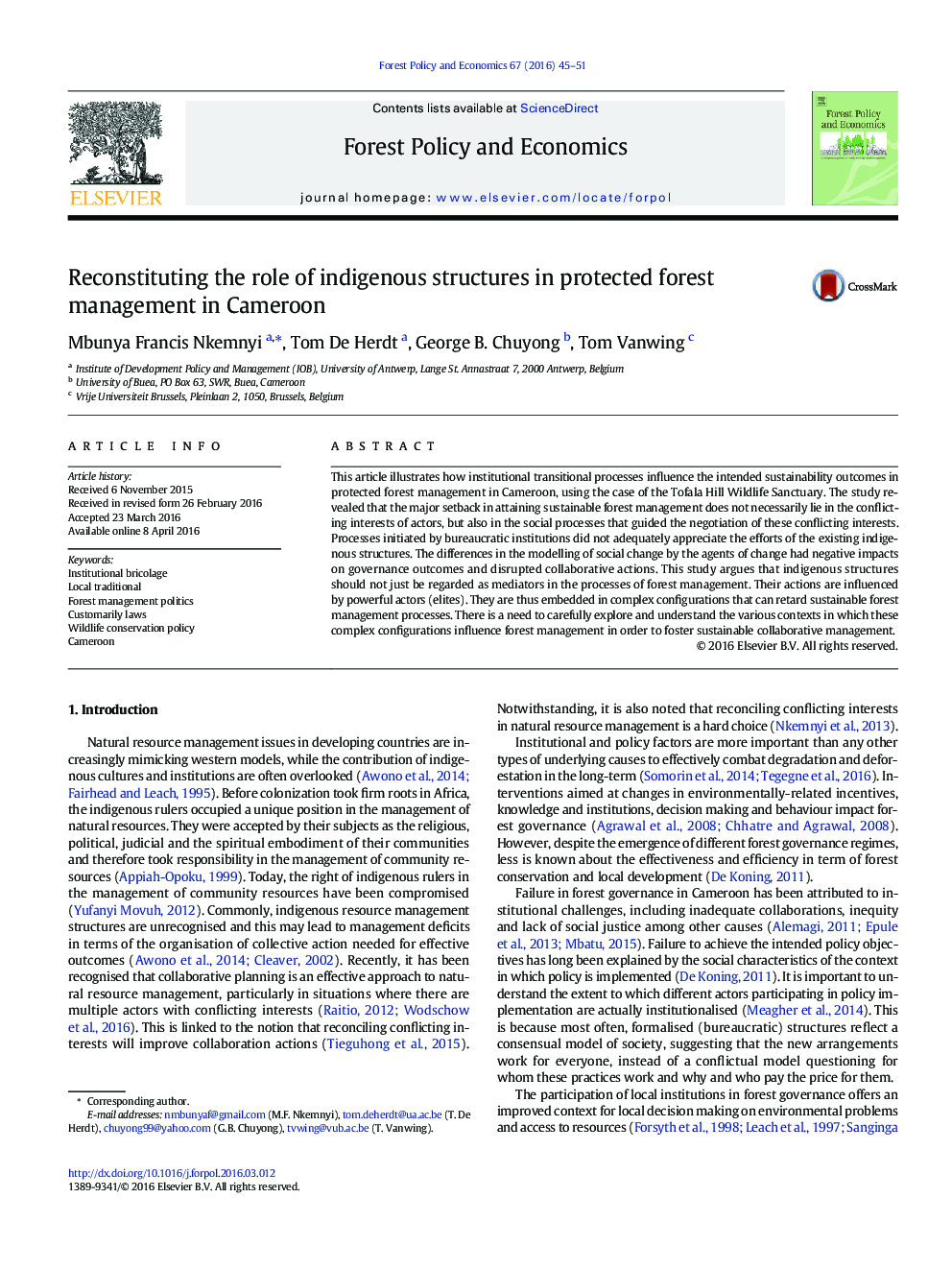| Article ID | Journal | Published Year | Pages | File Type |
|---|---|---|---|---|
| 91101 | Forest Policy and Economics | 2016 | 7 Pages |
•Social processes in reconciling conflicting interests in forest management complicate the process, leading to conflicts.•The processes of modelling social change negatively impacts governance outcomes and disrupted collaborative actions.•There is need to explore the various contexts in which these complex configurations influence forest management.
This article illustrates how institutional transitional processes influence the intended sustainability outcomes in protected forest management in Cameroon, using the case of the Tofala Hill Wildlife Sanctuary. The study revealed that the major setback in attaining sustainable forest management does not necessarily lie in the conflicting interests of actors, but also in the social processes that guided the negotiation of these conflicting interests. Processes initiated by bureaucratic institutions did not adequately appreciate the efforts of the existing indigenous structures. The differences in the modelling of social change by the agents of change had negative impacts on governance outcomes and disrupted collaborative actions. This study argues that indigenous structures should not just be regarded as mediators in the processes of forest management. Their actions are influenced by powerful actors (elites). They are thus embedded in complex configurations that can retard sustainable forest management processes. There is a need to carefully explore and understand the various contexts in which these complex configurations influence forest management in order to foster sustainable collaborative management.
